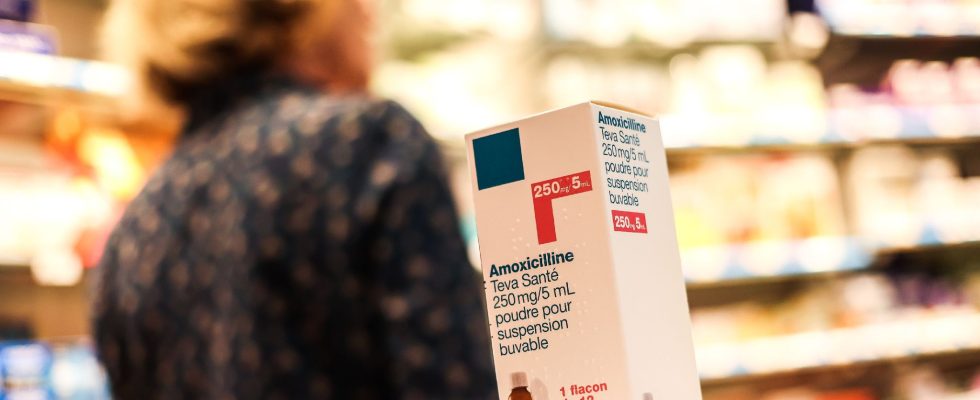Single sale of antibiotics, the solution to shortages? In any case, this is the route that the government is considering in order to overcome supply difficulties, such as France experienced last winter. “There is no rationing. The idea is to make the distribution of drugs to the unit compulsory when there is tension. But not all, only certain antibiotics” a source told AFP close to the file, confirming information from Franceinfo. This measure has been possible for voluntary pharmacies since the beginning of 2022. It could now become the norm, while around 3,500 medicines were reported out of supply last year.
A promise of Emmanuel Macron’s presidential campaign in 2017, the idea of selling antibiotics individually took several years to be introduced, particularly in the face of skepticism from specialists. Who does not weaken today. “We are not against this measure, but we believe that it will not be very useful,” explains Philippe Besset, president of the Federation of Pharmaceutical Unions of France. If you take the shortages of amoxicillin last winter , it was mainly a question of shortages in its pediatric version. However, for the children’s form of this antibiotic, this requires a bottle of syrup. What do you want us to do in this case?” Pierre-Olivier Variot, president of the Union of Community Pharmacists’ Unions, is even more doubtful. “This is not a measure to avoid shortages, but to see what we can do once they are there. Rather, we want measures to prevent these shortages!”
Fight against waste
In order to combat shortages and drug waste, the government is therefore relying on the unit sales tool. According to a study published at the end of the 2010s by the International Institute for Anti-Counterfeiting Medicines Research (IRACM), each French person wasted on average 1.5 kilograms of medicines per year. But for Philippe Besset, this problem mainly comes from people “who do not follow their treatment to the end”, and who thus keep medicines at home unnecessarily, before getting rid of them.
An observation shared by Pierre-Olivier Variot, who does not see the relevance of this measure for antibiotics. “The objective of selling individually would be to avoid dispensing part of the box which would be of no use, in the event of a shortage. But today, boxes of antibiotics are manufactured by manufacturers according to the recommendations of the High Authority for Health (HAS). If the treatment is to last six days, then the box contains six tablets; if it is seven days, there are seven. If people have too many tablets, it is because “Doctors prescribe outside of the recommendations, without it providing any better treatment. I find this absurd.”
“7 times out of 10, the prescribed antibiotic is not useful”
Another problem highlighted by pharmacists: overconsumption of antibiotics in France, which would have an influence on shortages. According to Santé Publique France, “despite a continuous decline for 10 years in the consumption of antibiotics in cities”, France remained, in 2021, the fourth country in Europe which consumed the most per capita. “Above all, we need measures of good use to verify that antibiotics are necessary. The reality is that 7 times out of 10, the antibiotic prescribed is not useful. The correct answer is therefore not to sell them individually, but not to sell them at all,” explains Philippe Besset.
The pharmacist also calls for the generalization of diagnostic orientation tests, which make it possible to distinguish bacterial infections from viral ones – antibiotics having no effect on the latter. According to the same source close to the matter cited by AFP, the implementation of unit sales could also have a role to play in the “fight against antibiotic resistance”, that is to say the process according to which certain bacterial infections are becoming more and more resistant to antibiotics, in particular due to their excessive and often inappropriate consumption.
An argument that makes sense. “It can be a good idea. Sometimes we give an extra box of antibiotics just for three tablets,” says a Parisian pharmacist who is rather open to the measure, but perplexed about its implementation. “Between what is said and what is concretely feasible, there is a difference. From a practical point of view, this requires a certain organization to ensure the safety of the medicines. The boxes have a batch number and an expiration date. expiration to ensure the monitoring and safety of treatments. If we denote the drugs, there is a risk that we could lose this monitoring. The government may have communicated too early, we still lack information concrete elements.”
